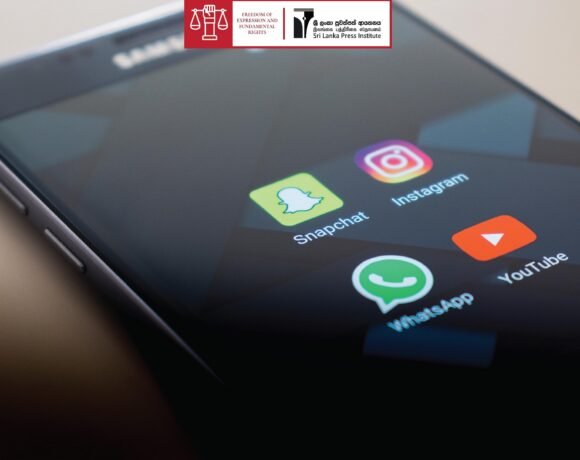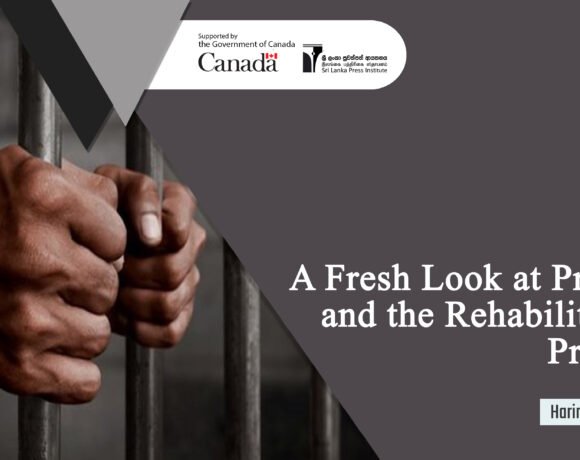
Human Rights essential for better recovery
Dhanushka Silva
International Human Rights Day falls on December 10th every year. The theme of Human Rights Day is ‘Recover Better – Stand Up for Human Rights’. Although human rights are common to the entire world, Asians continue to view human rights as a western concept. That dogma can be one reason for the poverty of this country. Many of the religious teachings emphasize responsibilities while focusing less on rights. However, human rights are historically significant now because of the COVID-19 global pandemic. Epidemic expanded to a social, economic and political crisis and human rights violations reflect the crisis. However, neglecting human rights, when responding to the pandemic, is risky.
A pandemic cannot be controlled by locking down the rights
Shall we further depend on traditional views and beliefs in a high-risk moment like this? Shall we include human existence and dignity into the emergency responses? We will have to make the correct decision regarding this dilemma. The killing of the prisoners who begged for PCR tests and suspending the difficulties in the isolated area of Atulugama amounted to a lockdown of healthcare. It ultimately contributed to the spread of the virus. Community health must be prioritized when responding to the pandemic. The strict restrictions regarding access to healthcare must be relieved. However, destructive laws and policies block access to healthcare.
When responding to the pandemic, we must first understand that the threat to life is the virus and not the infected people. However, the statements of the authorities when reporting the infected persons is against human dignity. The terms like ‘apprehending the cases’ and ‘the family members of the patients’ are against the patient and his family’s privacy. These insulting responses from the authorities compel the patients to hide. A COVID-19 infected person is not a criminal. The patient needs healthcare and treatment. The virus cannot be controlled by way of hate speech and threats against the patients. Instead, the suspicion on the infected persons and terrifying the society against the disease aggravate the disease’s spread. Considering infected person as enemies who threaten the healthcare is detrimental to the efforts to curb the virus. An epidemic cannot be compared to war. The war is an organized manoeuvre, but a virus is a minute germ that cannot be observed by the naked eye. Training is needed to wage war. Inaction spreads the virus. The epidemic can push community health to danger. Although the epidemic is dangerous, use of power, arresting and detaining must be done wisely guaranteeing fair trials and safeguarding privacy. The virus must be locked down but not the democracy.
Drones for surveillance and not for virus control
The military surveillance drones are equipped with night vision, and the behaviours of the persons can be traced even in darkness. Violation of human rights and personal freedom increased due to China’s widespread use of drones for surveillance. The authoritarian rule in China used drones even for warning and punishing. Sri Lankan government also blatantly violated human rights and personal freedom by misusing high tech drones. The use of drones violated even the regulations of the Civil Aviation Authority. They were used by the military to observe human behaviours in isolated areas. The drones were never used for distributing first aid or other necessities. They were used to violate the privacy of the persons who were undergoing quarantine. They do not even facilitate the quarantine process. It is a hazardous situation. The government can use drones to distribute food or medicine during a lockdown. They can also be used to deliver electric, water, telephone bills and warning letters on credit and lease payments. However, drones cannot capture the virus.
In May 2020, the judiciary in Paris banned surveillance by drones emphasizing that they would clearly and severely violate privacy. US civil rights organizations have also initiated legal action against the misuse of drone technology, and several states have banned surveillance by drones in the guise of controlling the pandemic. In Sri Lanka, the military collects the data of surveillance cameras fixed to drones. They do not admit the responsibility of violation of privacy. Drones have become a threat to the lives of the civil and opposition activists.
Scarcity of water and sanitary facilities catalyze epidemic
The low-income group people, beggars and elders are facing severe shortages of water amidst their struggle against COVID-19. About 2.2 billion people lack water to wash their hands to be safe from the virus. Clean water is a must for epidemic control because water is essential for sanitation. Still, millions of low-income earners have to walk miles or wait in long queues to fetch water. They face health problems due to the shortage of potable water. They cannot ‘waste’ difficulty brought water for too often hand washing. The number of deaths caused by the lack of clean water for drinking and sanitation causes more deaths than the losses of life caused by war and violence.
About 2.3 billion people in the world lack necessary sanitary facilities like toilets and latrines. Around 80% of the drains flow to the environment without been purified. Dehydration can kill a person. Each day, over 800 children less than five years of age die due to diarrhoea and water-borne diseases caused by dirty water. Over 700 million people around the world can be displaced due to shortage of water by 2030, as warned by experts. The authorities must focus more on safe water supply and minimizing health risks to relieve from the pandemic. Engineers and community health professional with specialized training are required during emergencies like epidemics. Water supply and other essential sanitary systems can be paralyzed during emergencies. During natural disasters as well as outbreaks, the people who are affected need the service of a battalion of community physicians than the military or a Presidential Task Force.
Human rights provide guidance to face emergencies. Community contributions and the capacities to fight against the virus can be obtained through that. Uniting as a community with humanity and dignity to face the threat of the epidemic is more important. We can recover better if we stand up for human rights.








